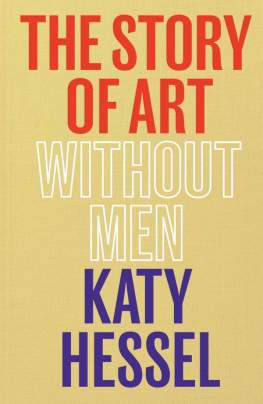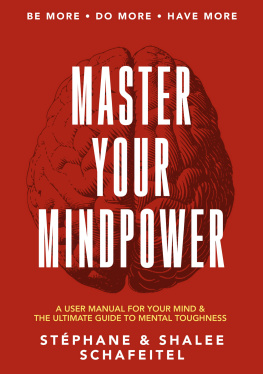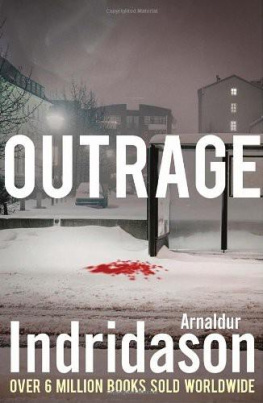Stephane Hessel - Time for Outrage!
Here you can read online Stephane Hessel - Time for Outrage! full text of the book (entire story) in english for free. Download pdf and epub, get meaning, cover and reviews about this ebook. genre: Politics. Description of the work, (preface) as well as reviews are available. Best literature library LitArk.com created for fans of good reading and offers a wide selection of genres:
Romance novel
Science fiction
Adventure
Detective
Science
History
Home and family
Prose
Art
Politics
Computer
Non-fiction
Religion
Business
Children
Humor
Choose a favorite category and find really read worthwhile books. Enjoy immersion in the world of imagination, feel the emotions of the characters or learn something new for yourself, make an fascinating discovery.

- Book:Time for Outrage!
- Author:
- Genre:
- Rating:3 / 5
- Favourites:Add to favourites
- Your mark:
- 60
- 1
- 2
- 3
- 4
- 5
Time for Outrage!: summary, description and annotation
We offer to read an annotation, description, summary or preface (depends on what the author of the book "Time for Outrage!" wrote himself). If you haven't found the necessary information about the book — write in the comments, we will try to find it.
Time for Outrage! — read online for free the complete book (whole text) full work
Below is the text of the book, divided by pages. System saving the place of the last page read, allows you to conveniently read the book "Time for Outrage!" online for free, without having to search again every time where you left off. Put a bookmark, and you can go to the page where you finished reading at any time.
Font size:
Interval:
Bookmark:

Stphane Hessel
Time for Outrage!
Stphane Hessel
Time for Outrage!
Stephane Hessel, Resistance fighter and concentration camp survivor, tells the young of today that their lives and liberties are worth fighting for. Remembering the ideals for which he risked his life, while never forgetting the evils against which he struggled, the now 94-year-old writer and diplomat calls on all of us to take back the rights that have slowly slipped away since the Second World War ended. As sales of this masterful polemic approach a million in France, it is published here for the first time in English.
Time for Outrage!
Ninety-three years. Im nearing the last stage. The end cannot be far off. How lucky I am to be able to draw on the foundation of my political life: the Resistance and the National Council of the Resistances program from sixty-six years ago. It is thanks to Jean Moulin that all the elements of occupied France-all the movements, the parties, the unions-came together within the framework of the National Council to proclaim their allegiance to Fighting France and to the only leader it recognized, Gen. Charles de Gaulle. I was in London, where I had joined de Gaulle in March 1941, when I learned that the council had put the finishing touches on its program and adopted it on March 15, 1944: a collection of principles and values for Free France that still provides the foundation of our countrys modern democracy.
We need these principles and values more than ever today. It is up to us, to all of us together, to ensure that our society remains one to be proud of: not this society of undocumented workers and deportations, of being suspicious of immigrants; not this society where our retirement and the other gains of social security are being called into question; not this society where the media are in the hands of the rich. These are all things that we would refuse to countenance if we were the true heirs of the National Council of the Resistance.
After 1945, after that horrific tragedy, the forces in the National Council of the Resistance achieved an ambitious resurrection for France . Let us remember that this was when the social safety net that the Resistance called for was created: A comprehensive social security plan, to guarantee all citizens a means of livelihood in every case where they are unable to get it by working; and retirement that allows older workers to end their lives with dignity. Sources of energy-electricity, gas, coal-were nationalized, along with the large banks, in accordance again with what the program advocated: returning to the nation the major means of production that have been monopolized, the fruits of common labor, the sources of energy, mineral riches, insurance companies, and big banks; and establishing a true economic and social democracy, which entails removing large-scale economic and financial feudalism from the management of the economy. The general interest had to be given precedence over particular special interests, and a fair division of the wealth created by the world of labor over the power of money. The Resistance proposed a rational organization of the economy to guarantee that individual interests be subordinated to the public interest, one free of a dictatorship of established professionals in the image of the fascist state. The Provisional Government of the French Republic (1944-46) assumed the task of realizing this ideal.
Genuine democracy needs a free press. The Resistance knew this, and it demanded the freedom and honor of the press and its independence from the state and the forces of money and foreign influence. Again, these goals were carried forward, thanks to the press laws enacted after 1944. But they are at risk today.
The Resistance called for the practical opportunity for every French child to have access to the most advanced education, without discrimination-but the reforms proposed in 2008 run counter to this plan. Young teachers have refused to implement these reforms up to now, and I support their actions. They have seen their salaries reduced in retaliation. They got angry, they disobeyed, they decided that these reforms diverged too far from the ideal of education in a democratic republic, were too deeply beholden to a society of money and failed to develop the creative and critical spirit sufficiently.
All of these social rights at the core of the program of the Resistance are today under attack.
Outrage Inspires Resistance
They have the nerve to tell us that the state can no longer cover the costs of these social programs. Yet how can the money needed to continue and extend these achievements be lacking today, when the creation of wealth has grown so enormously since the Liberation, a time when Europe lay in ruins? It can only be because the power of money, which the Resistance fought against so hard, has never been as great and selfish and shameless as it is now, with its servants in the very highest circles of government. The banks, now privatized, seem to care primarily about their dividends, and about the enormous salaries of their executives, not about the general good. The gap between richest and poorest has never been so large, competition and the circulation of capital never so encouraged.
The motivation that underlay the Resistance was outrage. We, the veterans of the Resistance movements and fighting forces of Free France, call on the younger generations to revive and carry forward the tradition of the Resistance and its ideas. We say to you: take over, keep going, get angry! Those in positions of political responsibility, economic power and intellectual authority, in fact our whole society, must not give up or let ourselves be overwhelmed by the current international dictatorship of the financial markets, which is such a threat to peace and democracy.
I want you, each and every one of you, to have a reason to be outraged. This is precious. When something outrages you, as Nazism did me, that is when you become a militant, strong and engaged. You join the movement of history, and the great current of history continues to flow only thanks to each and every one of us. Historys direction is toward more justice and more freedom-though not the unbridled freedom of the fox in a henhouse. The rights set forth in the Universal Declaration of Human Rights in 1948 are indeed universal. When you encounter someone who lacks those rights, have sympathy and help him or her to achieve them.
Two Views of history
When I try to understand what caused fascism, the reasons we were overtaken by it and by Vichy , it seems to me that the rich, in their selfishness, feared a Bolshevik revolution. They let that fear control them. Yet all we need, now as then, is an active minority to stand up: that will be enough. We will be the yeast that makes the bread rise. Clearly, the experience of a very old man like me, born in 1917, differs from that of the young people of today. I often ask teachers to let me speak to their students. I say to the students: you dont have the same obvious reasons to get involved as we did. For us, resistance meant not accepting the German occupation, not accepting defeat. It was relatively simple. So was what came next: decolonization and the Algerian War. Algeria had to gain its independence. That was obvious. As for Stalin, we all cheered the Red Armys victory over the Nazis in 1943. Yet, when we learned about the Stalinist mass trials of 1936-38, it became necessary and obvious to oppose this unbearable totalitarianism as well. It was necessary, even if communism was a counterbalance to American capitalism. My long life has given me a steady succession of reasons for outrage.
These reasons came less from emotion than from a will to be engaged and get involved. As a young student in at the cole Normale Suprieure, I was influenced by Jean-Paul Sartre, an older schoolmate of mine. Nausea and The Wall, rather than Being and Nothingness, were important in the formation of my thought. Sartre taught us to tell ourselves, You as an individual are responsible. It was a kind of anarchist message. Mankinds responsibility cannot be left to some outside power or to a god. On the contrary, people must commit themselves in terms of their personal, individual human responsibility. When I started at the cole Normale Suprieure on rue dUlm in Paris , in 1939, it was as a devoted follower of the philosopher Hegel. I attended the seminars of Maurice Merleau-Ponty. His class investigated concrete experience and the bodys relationships with sense, with sense as meaning rather than as the five senses. However, my natural optimism, which wanted everything desirable to be possible, led me back to Hegel. Hegelianism interprets the long history of humanity as having meaning: that of mankinds liberty advancing step by step. History is made by successive shocks, of confronting and overcoming successive challenges. Societies progress, and in the end, having attained complete liberty, may achieve a democratic state in some ideal form.
Font size:
Interval:
Bookmark:
Similar books «Time for Outrage!»
Look at similar books to Time for Outrage!. We have selected literature similar in name and meaning in the hope of providing readers with more options to find new, interesting, not yet read works.
Discussion, reviews of the book Time for Outrage! and just readers' own opinions. Leave your comments, write what you think about the work, its meaning or the main characters. Specify what exactly you liked and what you didn't like, and why you think so.







